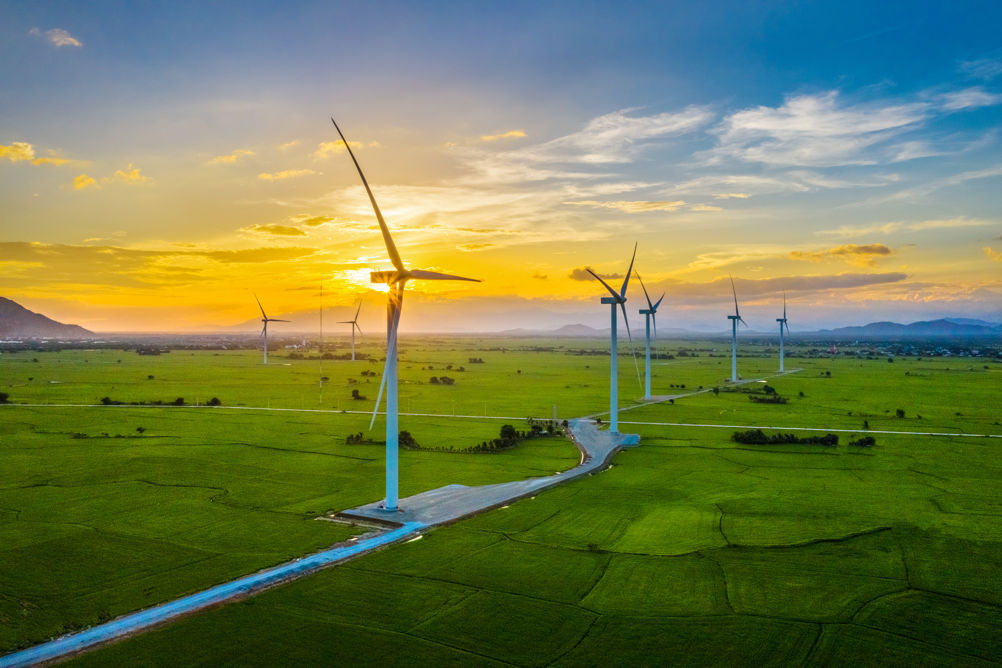To meet its ambitious climate change targets, the UK must accelerate its deployment of renewable energy. Vital to realising this goal, is unearthing a “green army” of talent with the passion to drive forward our net zero ambitions.
Solar and battery storage form an undervalued but essential part of our future energy mix. Batteries enable us to get more renewable energy onto the grid by storing the surplus electricity when wind is plentiful and releasing it demand is highest. Research has shown battery storage will need to represent 10 per cent of GB generation capacity by 2030 if net zero is going to be a reality. Solar power is currently the cheapest form of energy in history; so no surprise the UK Government wants to grow our current solar capacity fivefold by 2035.
The renewable energy sector is responding to these targets with ambition, including SSE, which is currently investing £24bn in net zero infrastructure by 2030 and creating 1,000 green jobs a year in the process. Investments like ours mean the government predicts 480,000 jobs will be created by 2030 in the renewables sector. But there’s a problem.
The UK faces a STEM skills deficit, and our industry is vying for the same small pool of talent. Overcoming the challenges to find this green workforce requires short- and long-term solutions driven by policy and leaders within our sector.
Where our colleagues will come from in 2025
With STEM workers twice as likely to miss a job opportunity due to a lack of skills, despite 2021 being a record year for enrolment in STEM courses at UK universities, our sector is facing an internal battle to fill the job vacancies required to bring more clean energy online this decade.
To address the short-term challenge, global workforce mobility is vital. We must welcome the global talent that can help us accelerate our pipeline of renewables projects with a skilled and diverse workforce. Government policy is essential to making this happen, and businesses can support this shift by enabling global moves and support employees applying for visas.

Simultaneously, we can take advantage of transferable skills from other sectors, limiting the reliance on upskilling. Those working in the energy, engineering and technology sectors hold the skills we urgently need to accelerate the rollout of solar, battery and other renewable projects in the UK.
With over half of 18–34-year-olds valuing their employers’ ESG credentials when making careers decisions, we hope the next few years will see an acceleration of people transferring to green jobs and as employers it is our responsibility to support transference and retention by meeting the needs of our people.
Beyond 2030
While addressing the short-term barriers should be an immediate concern, we need to act now to lay a strong foundation for the continued growth of the sector.
There is both a public and private responsibility to educate the green workforce of the future and government action to increase STEM opportunities for all young people is essential. SSE is helping schools embed STEM in their curriculum, providing free resources. But it is the Department of Education who have the ultimate power to ensure there is a sustainable strategy to educate our future workforce.
Our sector’s responsibility is to ensure we too are boosting STEM education opportunities. As we seek more efficient and affordable ways of producing energy, SSE and industry colleagues need the next generation of apprentices and trainees to help us do this.
Towards 2050
Meeting the UK’s legally binding 2050 net zero targets, will require approximately 500,000 more people working in the sector. Without the right talent, we will not meet these targets.
Many of our colleagues in the 2040s will be starting their career across the next two decades and their talent will be defined by the investment we make in them today. There is a practical need to direct our expertise and finance towards education and training so that skills shortages are a thing of the past, in a decade when clean energy should be thriving.
As emerging markets will further increase the demand for STEM skills by 2050, it is vital there is a public-private strategy in place to train the future workforce and embed flexibility and resilience in our labour market.
Optimism in the face of challenge
There can be no doubt we face an immediate and growing challenge in our sector and we’ve not a moment to lose in overcoming these barriers to keep the UK’s net zero transition on track. But to avoid losing sight of our long-term goals we need a green skills strategy today.

Philippa Bastable is HR Manager at SSE Solar and Battery





Virgin Atlantic’s Flight100 saved 95 tonnes of CO2 in first SAF flight
LOL a time-honoured unit of volume measurement,, just as large <i>AREAS</i> are expressed as multiples of the size of Wales … or renewable energy...